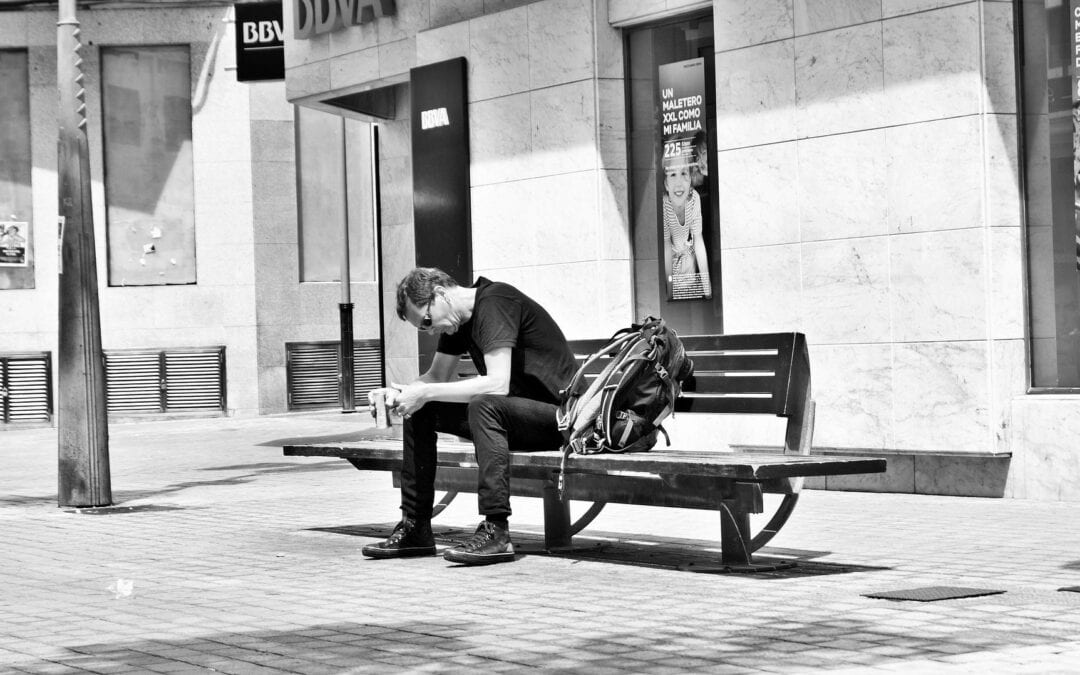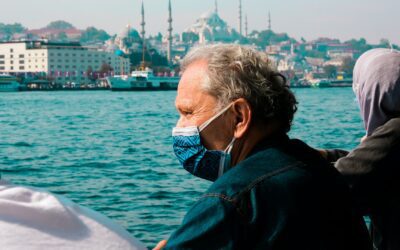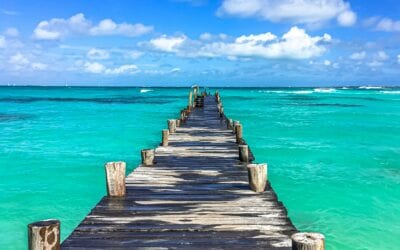|
|
When you tell someone that you are a digital nomad and you get to travel around the world, everyone responds with excitement. It is amazing to have the opportunity to explore the world and discover new places on a regular basis.
But while the lifestyle of long-term travel is certainly exciting, it is not always easy. Always being on the road, not having a place to call home, and missing out on putting down roots and developing long-term relationships tend to be challenges that wear people out over an extended period of time.
When you do start to feel weighed down by these challenges on your long-term travel journey, it is called travel fatigue.
What Causes Travel Fatigue?
People value different things in life, so they miss different things when they are on the road. But there are a few common challenges that cause travel fatigue.
Principally, people tend to feel the absence of the ability to form long-term relationships, whether friendships or romantic relationships. The connections that you form on the road tend to be short lived, lasting a day, a week, or a month. While some of these relationships can be the most important in your life, the majority tend to be ephemeral.
This can leave you feeling like you don’t have a place in the world where you matter, where people really care about you and feel your absence. Of course, you probably have your family and friends back home, but this can just make you miss them more.
When you do manage to form deep connections with people and places, having to constantly say goodbye to them to move onto the next place can take a serious emotional toll.
Naturally, people tend to miss home, but more than that, they tend to miss having a home and the structure that comes with it. Constantly being on the road, living out of a suitcase and changing beds every day, can make it difficult to do things that you need to do for your own self-care.
You probably aren’t getting enough sleep or exercise, you are probably eating pretty poorly and drinking too much. Also, not having a secure, private place to call your own can mean that you don’t have a sanctuary from the rest of the world.
Finally, when you are so busy experiencing the world, it can be easy to forget that most people also need to do and create. Most of us thrive when we are learning new things, progressing and achieving goals, and feeling like we are contributing things of value to the world. If you are working, you might think that you have that covered, but depending on your work, what you are doing might not be personal enough to fulfil these innate needs.
These are common challenges that begin to weigh people down and trigger travel fatigue. But everyone is different, so this is not the limit of the challenges that might result in travel fatigue.

How Do You Know If You Have Travel Fatigue?
The symptoms of travel fatigue can resemble the symptoms of depression. These include:
- Feeling physically tired;
- Aches and pains, including headaches;
- Trouble concentrating and making decisions;
- Pessimism;
- Trouble sleeping;
- Digestive problems;
- And generally not feeling excited about things.
So, if you are feeling consistently down and under the weather, if you are starting to miss things from home more than before, if packing and moving on to you next destination seems like a hassle and you just aren’t excited about it, you might be suffering from travel fatigue.

How to Deal with Travel Fatigue?
If you are dealing with travel fatigue, it could be that it is time to go home, even if it is just for a short break. But that’s not possible for everyone. It could also be that you are just in a down period that you need to push through in order to find your excitement for travel again.
If you do decide to push through, read on for our recommendations of things to do to lift yourself out of your fug and find your joy in travel again.
If you are looking for advice for preventing with remote working burnout, check out our tips here.
Thin Out Your Schedule
The world is a big place. It can be tempting to try and squeeze as much into your time travelling as possible. Whether you try and do in six countries in the space of a month, or pack every free moment with sightseeing and experiences. But this can be a major cause of travel fatigue.
Not only do you get physically tired because you don’t give yourself time to rest and recover, but you also aren’t giving yourself time to process and appreciate all the amazing things that you have seen.
If you see ten temples in the space of a week, are you really going to remember and appreciate each of them for the individual masterpieces that they are? If you spend an entire month doing nothing but visiting museums and drinking in bars, those experiences will start to bleed into each other. The special moments that make the digital nomad lifestyle worthwhile can lose their shine.
Prioritize quality over quantity. Maybe take the time to get to know one or two location well instead of trying to squeeze in eight. Give yourself the time to sit at a local park or café and just soak up the ambience and understand how everything you have seen fits in context, and what it means to you.
It’s also a good idea not to plan similar things back-to-back. For example, you don’t necessarily want to visit a string of beach villages over the course of a few weeks. While beautiful, your time will feel more punctuated if you mix different experiences. Head to the big city, head to the mountains, and then enjoy the beach again.
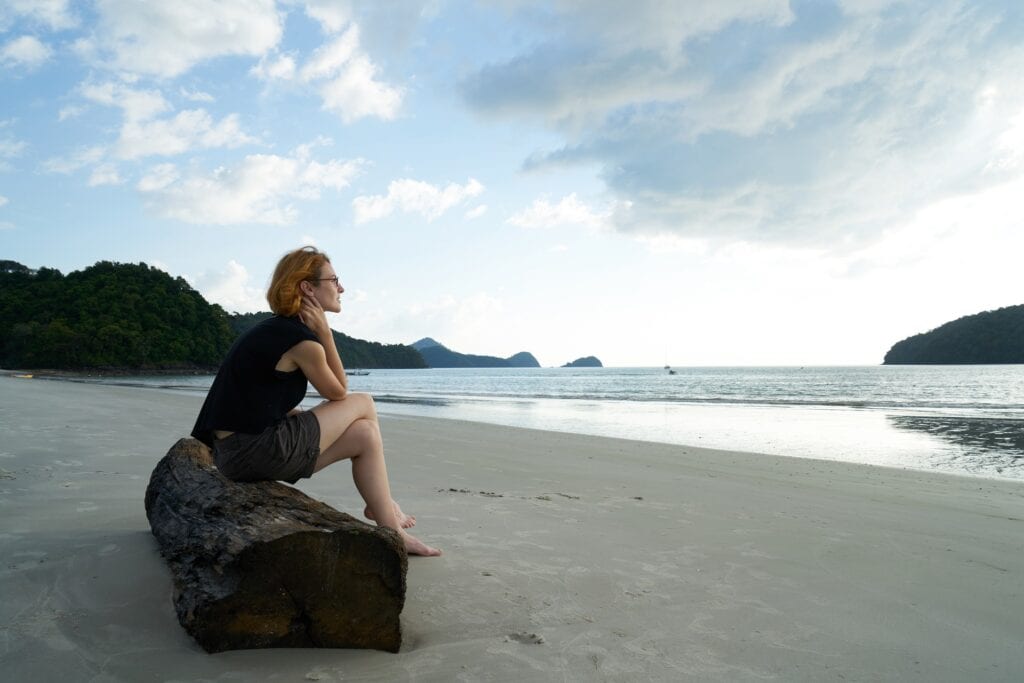
Prioritize Self-Care
A lack of self-care can be a major contributor to travel fatigue. Improving your self-care can do a lot to lift you out of the travel fatigue fug and get you excited about being on the road again.
Sleep
Start with sleep, which can seriously suffer when you are on the road. You might be scheduling late night or early morning travel, or even traveling overnight to save time. You may also find that the place you have to lay your head isn’t always comfortable, whether because of the bed itself or the environment.
So, stop treating sleep like something that can be skipped for the sake of travel. Book your movement in a way that let’s you get a good night’s sleep most days. Also, choose accommodation where you know you will sleep, even if it means paying a bit extra for an Airbnb or a hotel over a hostel or Couchsurfing option.
If you spend a whole day on the road travelling, forking out for a hotel to recover before moving on to your more permanent accommodation. This isn’t a waste of money when you are suffering from travel fatigue.

Exercise
Another thing that often falls by the wayside when we are on the road is a regular exercise regime, which is essential to both our physical and mental health.
You might think that you will get enough exercise exploring locations on foot, but don’t forget that there are also days when you spend the entire time on transport, sitting in front of a computer, or sitting around a dinner table.
Don’t leave your physical well-being to chance. Establish an exercise routine that works for you.
We’ve already written a full article on how to stay fit on the road, which gives in depth tips and advice.
But if you are doing a lot of walking, yoga can be a good balancing exercise for mobility, muscle tone, and recovery.
And don’t forget about recovery. Your probably already know that its not a good idea to go to the gym and lift heavy weights every day for a week. You need rest and recovery days. The same applies if you spend 8 hours walking. It can be an extreme strain on your body if you don’t give yourself a chance to rest and recuperate.
Drinking
It is very easy to drink too much when you are on the road. Sometimes it is self-medication to help with sleeping at the right time or to get through challenging stretches of travel. The local bar can also be one of the best places to meet new people, and who doesn’t want to try the local tipple?
But drinking alcohol regularly can seriously undermine your immune system. It makes you more likely to catch the common cold, as well as develop serious medical conditions. So, watch what you drink.
The same goes for coffee, soft drinks, and energy drinks, which you may be using to power through the day.
Eating
Also, when you don’t have access to your own kitchen, stocked with the things that you like to eat and are good for you, it can be very easy to slip into a poor diet. If you are eating out regularly, you are probably eating too much, as restaurants serve large portions. Are you also snacking on processed, pre-prepared food when there is nothing else available?
Eating a poor diet can sap you of energy, cause energy crashes throughout the day, lead to unhealthy weight gain or loss, and, again, undermine the effectiveness of your immune system.
While you shouldn’t need to be careful every time you go out for a nice meal, when you are eating our regularly, be conscious of what you order. Get the dressing on the side, skip the fries, and don’t overdo it on the drinks (alcoholic or sugary).
Salad can be one of the things that we don’t eat enough of when travelling. It can be expensive to get the produce that you need to make your own, and a salad is rarely the most attractive thing on a restaurant menu. But buffet restaurants usually have a good selection of salads. Fill your plate with salad and protein, and again, skip the fries.
When you arrive at a new location, prioritize going to the local market and getting the supplies you need to keep yourself fed. Fresh fruit and nuts are healthy and almost always available.
If you are struggling with travel fatigue, book accommodation with kitchen facilities so that you have the option to look after yourself.
Establish A Base
If you are suffering from travel fatigue, try to find a halfway house by establishing a base for yourself: a home away from home. Choose a place that has good access to the places that you want to visit in that corner of the world, and in which you feel comfortable.
Ideally you might have an Airbnb, a friend’s house, or a hostel where you know the staff, feel comfortable, and have a private room. This should be a place where you can manage a self-care routine of good sleep, home cooking, and regular exercise.
Explore the places on your list of must-see locations, and then come back and give yourself a break. A bit like taking a holiday from your travels. Recharge your batteries, and then go out and discover more.
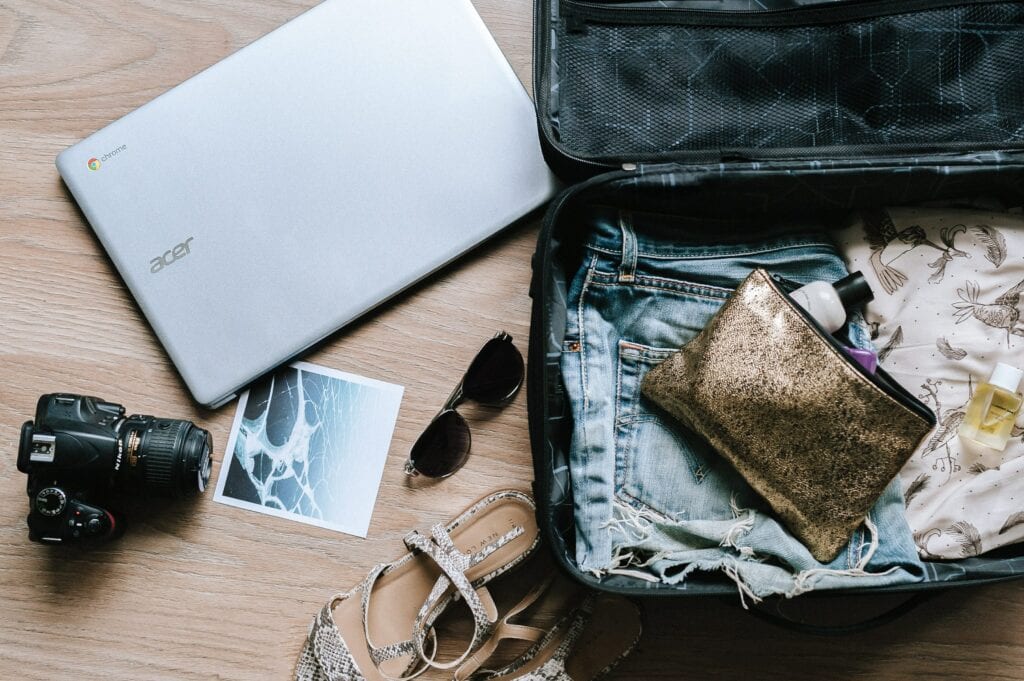
Do Things for Yourself
While we are busy consuming all the amazing things that the world has to offer, we can forget to do things. Learning new things, achieving goals, and putting things out into the world that feel like they are valuable is nourishing for the soul.
It is easy to abandon your hobbies when on the road. You’ll be far too busy discovering new things to worry about them, right? But this marks the difference between “consuming” culture and “producing”.
So, if you have a hobby, continue with it. Don’t have one, take one up. Learn to play guitar, take a yoga teaching course online, dive into photo editing, or start writing.
Journal for yourself or publish your thoughts on a blog. While your website might not become an online sensation, it can be therapeutic for you, it’s a great way for family and friend to keep up with what you are up to, and you might genuinely help other travellers who are planning to go where you have been.
It doesn’t really matter what you do, it just needs to feel that need that we have to learn, be creative, and feel productive.
The Verdict
It might feel wrong to complain when you are a digital nomad: could life really get any better?
But the fact is that the rootlessness of the extended travel lifestyle and the challenges of creating structure that come with it can be tiring and difficult. If you spend extended periods of time in this lifestyle, you can develop travel fatigue.
Just like other types of stress and burnout, managing travel fatigue boils down to taking control of your self-care, and giving yourself the things that you need to feel better.
Having the security of medical insurance is important, and one that caters to digital nomads and their movements and lifestyle is even more desirable. There are providers like SafetyWing who offer travel and medical packages for digital nomads.
When you are on the road, the things that you need will be different in their specifics, but not in their principal. It is all about giving yourself what you need to thrive and make the most out of life.

